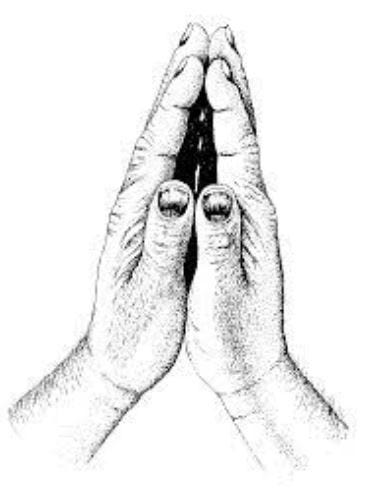The Power of Effective Prayers
Praying is an integral part of all religions. We pray daily or as often as possible, at home or going to temples, churches, mosques or gurudwaras. Our prayers are ritualised in the form of chants, songs, hymns, or shlokas. They are standardised so that memorizing them becomes easier and everyone can offer the same prayers. The familiar ritual provides a sense of physical and mental well-being.
However, for many people, it is just that – a ritual to be performed automatically routinely, without understanding or appreciating the substance inside the prayers. I am the least qualified person to comment on the rituals and all matters religious, so I will restrict myself to this suggestion: Spend some time to probe deeper into your prayers, their evolution and context to realise their true meanings.
My intent in writing this article is, besides saying continue your religious practices, to add my suggestions. These suggestions are additional to your existing religious practices, and not a replacement.
A) Pray for guidance in becoming a better person in all the four major spheres of your life. What are these four spheres? See my earlier article
B) Your prayers would be more effective if you beseech God to show the way, to help you in getting the skills and capability to solve your problems, instead of asking God to solve your problems on your behalf.
C) Pray for His guidance on the problems you face at that moment, after you have put in your efforts towards resolving them. Some people do not take any action on their problems or put in the minimum effort and pray for problems to go away. Instead of thinking, “He is there to help me; I will put the onus or burden on Him and just relax. He will take care of everything,” remind yourself that God helps those who help themselves.
D) Do not list out all your problems every time you pray. As mentioned in the previous article, “How to Solve Life Problems?”, you would have taken only the top most problem for solving before taking the next. Therefore, at any point of time, your focus will be only on one problem each in the 4 spheres of life and you should pray for His help on these problems.
E) Remember to express your gratitude for all the good things He has done for you. Be thankful to Him for the positive happenings in your life when you seek your blessings.
F) Always include in your prayers someone in your circle of concern; a relative or a friend who is having a difficulty or facing a problem. If you cannot think of anyone, include your close family members in your prayers. Circle of concern denotes you and your family, relatives, friends, and colleagues.
When I pray, I do not include matters that are outside my circle of concern. I do not pray for a ceasefire of the Russia/Ukraine war, for example. Pray for what matters to you most in the present moment and learn to be content with it. However, you may pray as many times a day as you wish. This type of personal prayer, in fact, provides more than peace of mind: according to gerontology professor Carolyn Aldwin, private prayer regulates emotions and helps to improve physiological processes such as blood pressure.
Praying is a habit you develop from a young age and you already know the importance of prayer. But are you putting your heart into your prayers? Are you treating it as a routine, or are you having it as an important part of your spiritual development? If your prayers are effective and sincere, you can be sure of receiving what you seek and your life becoming less stressful.



